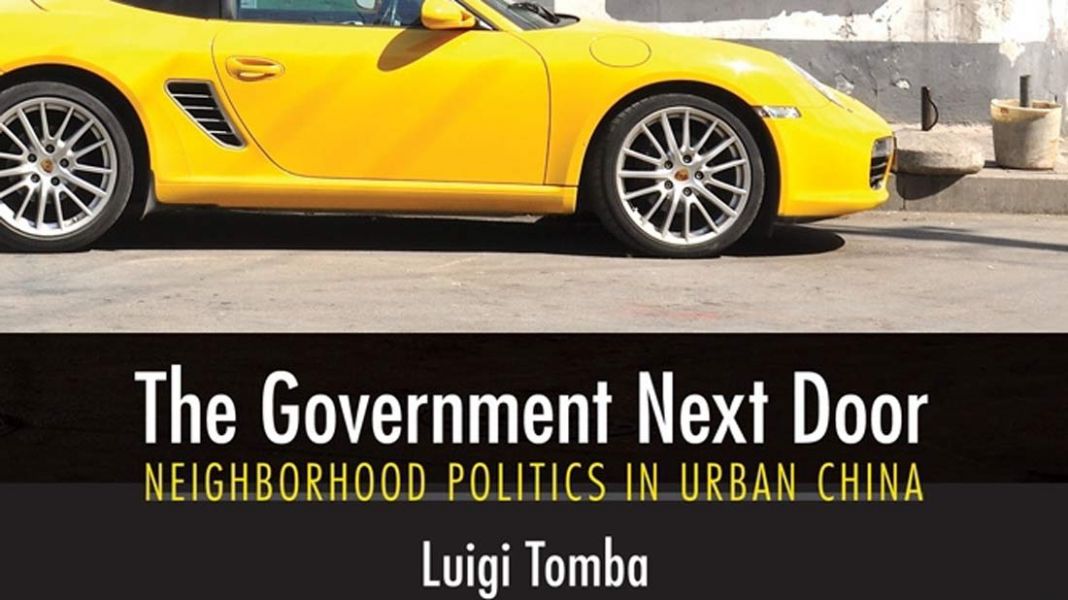
Luigi Tomba Awarded Prestigious Levenson Prize
Luigi Tomba has been awarded the prestigious Levenson Prize for his book The Government Next Door: Neighborhood Politics in Urban China, a study of China’s urban grassroots governing practices and their implication for regime legitimacy published in 2014 by Cornell University Press. Luigi—who now serves as Associate Director at the Australian Centre on China in the World—carried out extensive research on Chinese labour, which culminated in his 2002 book Paradoxes of Labour Reform.
Can you briefly illustrate the main argument of The Government Next Door?
Luigi Tomba: The Government Next Door is a book about Chinese residential neighbourhoods, the numerous conflicts that take place in them, and the ways in which the Chinese government governs an increasingly ‘private’ society. We often think of the Chinese state as a monolithic beast that has one single ideology, a common goal, and the capacity to enforce its will. This is only partly true. Local governments often create variations of the governance structure that challenge or compete with the central ideology. Many of the discourses generated by the government about what a good citizen is supposed to be and the overarching importance of social order turn into specific and tailored practices of government. Sometimes these practices allow a greater autonomy for the residents, at other times they require greater control, especially when the traditional control exercised by the employer is no longer available. Neighbourhoods are therefore the very place where citizens encounter these new and old rationalities of government. One of the main arguments of the book is that the government creates ‘arenas of contention’ where the government discourses set clear boundaries around what behaviour is allowed and what is not. Within these boundaries (symbolically overlapping the boundaries of China’s ‘gated’ residential communities) the potential for contention can be very high, as demonstrated by the almost ubiquitous presence of conflicts between homeowners and managers, developers, and the local government. Here, action to defend a private interest is allowed and at times even expected. Yet, action against local actors rarely turns into a systemic criticism of the government.
You worked on this book for almost a decade. Where and how did you carry out your fieldwork?
LT: I started my work searching for the middle class in relatively affluent neighbourhoods in Beijing. I then rapidly realised that not all neighbourhoods are governed in the same way. If you are wealthy you are more likely to be allowed to govern yourself in your privately-managed gated community, while if you are an unemployed worker or a migrant, the state will want to govern you much more closely. So I went from Beijing to Chengdu and from there to Shenyang where I worked in more dilapidated worker communities that had been affected by the restructuring of large public enterprises in the traditional industrial heartland of nort-eastern China. Interestingly, gaining access to these communities was easier than with the middle class as workers were always more interested in talking about their ordeals.
You started your academic career writing about Chinese labour reform. How does neighbourhood politics relate to labour? Does this topic represent a clean break from your previous research or is it somehow connected?
LT: I wrote my PhD on the interaction between the changes in socialist labour ideology and the changes in labour practices between the 1970s and the 1990s, when the transformation of China into a Socialist Market Economy produced some of its most significant consequences. At the time the discussion was about whether labour is a commodity or not (a difficult question for the ideologues, despite the crude reality). The connection between ideas and practices is what has always interested me, as no ideology exists in a vacuum and no legitimacy is created without consensus (whether democratic or not). Also the existence of these discourses (about value, quality, and even the nation) is central to the way in which people express and frame their expectations and ultimately their conflicts. There certainly is a connection in my methodological approach and the investigation of ideas and practices.
In your opinion, should we look at the struggles of Chinese homeowners as a signal of a rising civil society? Is the Chinese middle class likely to play a politically transformative role in China?
LT: Whatever these groups are promoting there is not enough autonomy to call them a civil society, and probably not enough awareness to call them a class. Many have predicted the rise of China’s middle class as the one thing that will put an end to authoritarianism. In the book, I argue that (while the future is impossible to predict) the story of the middle class so far suggests exactly the opposite. The new groups are either too aligned or too involved in the reform policy to desire a clear change of political regime. They will, eventually, change China but they are unlikely to change its government, at least for the time being. If anything, the role of high consuming groups can now be seen as a pillar of China’s social and political stability. Everything could change if China’s middle class project implodes, for example with the bursting of the housing bubble. Many urban citizens have invested in property and have almost no safety net. A nationwide crisis could therefore turn the wealthy, better educated, and proactive citizens of China into a formidable enemy for the current government although, even so, not necessarily for the system that governs China.





